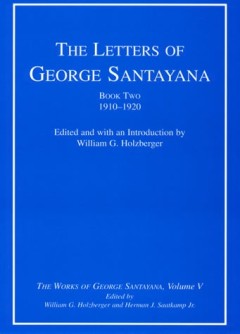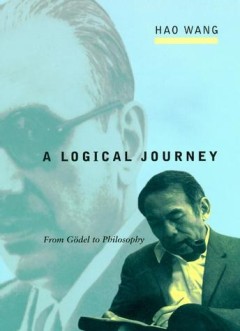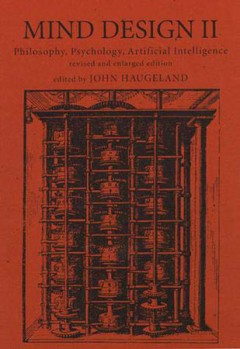Filter by

Knowledge and Mind: A Philosophical Introduction
This is the only contemporary text to cover both epistemology and philosophy of mind at an introductory level. It also serves as a general introduction to philosophy: it discusses the nature and methods of philosophy as well as basic logical tools of the trade. The book is divided into three parts. The first focuses on knowledge, in particular, skepticism and knowledge of the external world, an…
- Edition
- 1
- ISBN/ISSN
- 9780262269315
- Collation
- -
- Series Title
- -
- Call Number
- -

The Letters of George Santayana, Book Two, 1910–1920: The Works of George S…
The second of eight books of the correspondence of George Santayana.Since the first selection of George Santayana's letters was published in 1955, shortly after his death, many more letters have been located. The Works of George Santayana, Volume V, brings together a total of more than 3,000 letters. The volume is divided chronologically into eight books of roughly comparable length. Book Two c…
- Edition
- 1
- ISBN/ISSN
- 9780262283007
- Collation
- -
- Series Title
- -
- Call Number
- -

A Logical Journey: From Gödel to Philosophy
Hao Wang (1921-1995) was one of the few confidants of the great mathematician and logician Kurt Godel. A Logical Journey is a continuation of Wang's Reflections on Kurt Godel and also elaborates on discussions contained in From Mathematics to Philosophy. A decade in preparation, it contains important and unfamiliar insights into Godel's views on a wide range of issues, from Platonism and the na…
- Edition
- -
- ISBN/ISSN
- 9780262285766
- Collation
- -
- Series Title
- -
- Call Number
- -

Microcognition: Philosophy, Cognitive Science, and Parallel Distributed Proce…
Parallel distributed processing is transforming the field of cognitive science. Microcognition provides a clear, readable guide to this emerging paradigm from a cognitive philosopher's point of view. It explains and explores the biological basis of PDP, its psychological importance, and its philosophical relevance.
- Edition
- 1
- ISBN/ISSN
- 9780262270441
- Collation
- -
- Series Title
- -
- Call Number
- -

Mind design II :
Mind design is the endeavor to understand mind (thinking, intellect) in terms of its design (how it is built, how it works). Unlike traditional empirical psychology, it is more oriented toward the "how" than the "what." An experiment in mind design is more likely to be an attempt to build something and make it work--as in artificial intelligence--than to observe or analyze what already exists. …
- Edition
- -
- ISBN/ISSN
- 9780262275071
- Collation
- -
- Series Title
- -
- Call Number
- -
 Computer Science, Information & General Works
Computer Science, Information & General Works  Philosophy & Psychology
Philosophy & Psychology  Religion
Religion  Social Sciences
Social Sciences  Language
Language  Pure Science
Pure Science  Applied Sciences
Applied Sciences  Art & Recreation
Art & Recreation  Literature
Literature  History & Geography
History & Geography